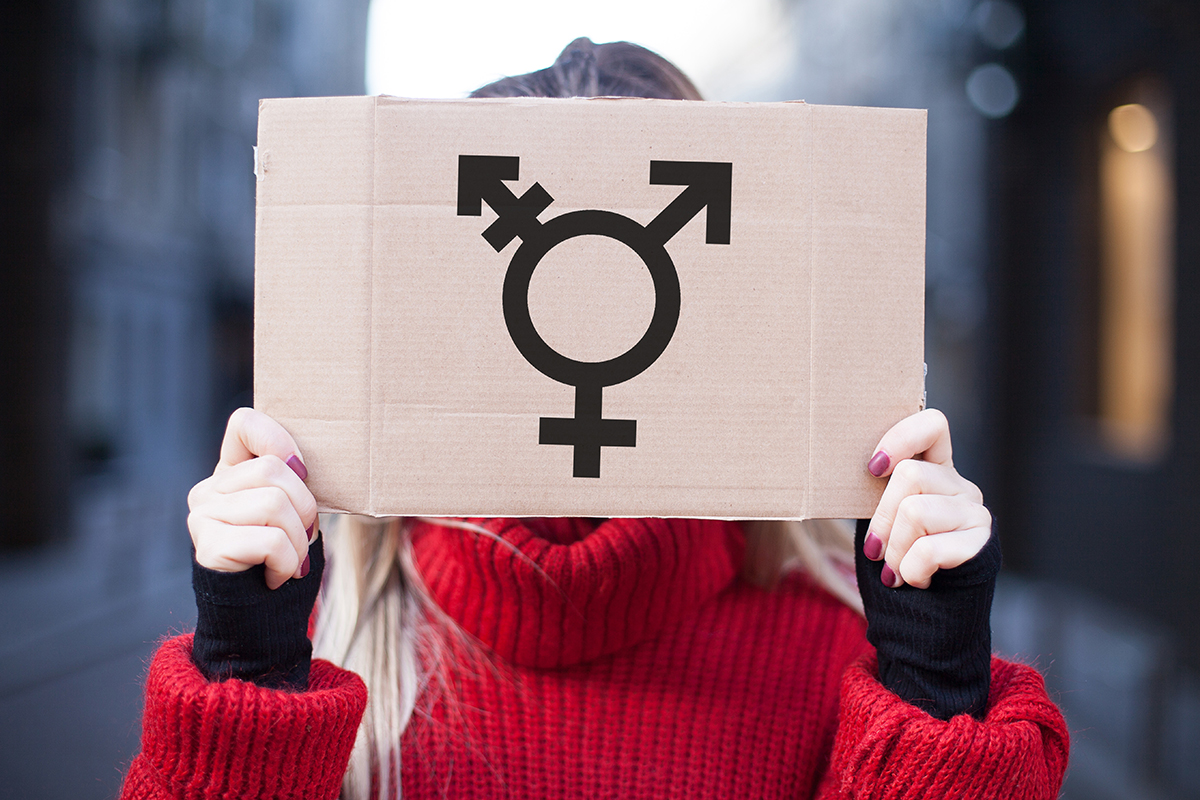Psychology
The Misuse of Empathy Is Devaluing Pain
Empathy is a fundamental human emotion that helps us to understand one another.

Pain is losing its meaning, and empathy is the culprit. Treating the pain of others as if it were one’s own has become less about relating to the anguish than demonstrating the empathizer’s piety. Spotlighting someone else’s suffering is now a means to an end, so it should come as no surprise that cultural and political appeals to humanity’s empathetic edge seldom produce the intended result; instead, it’s often divisive, self-centered, and unhelpful. Advocacy for change built on a transient emotional state is weak motivation for sustained action. Getting people to think about how they’d feel after following through with an action, however, is far more effective. Shifting those attitudes could be the key to combatting the nearsighted emotional surges that hijack a coherent sense of direction in Western culture. And it may reclaim the respect once held for pain—and the people who are experiencing it—in the process.
Empathy is a fundamental human emotion that helps us to understand one another. Typically, it has been reserved for personal relationships, which helped to ensure sincerity. When it has been encouraged in the public domain, it’s often guided by an accepted moral authority, such as a religious institution or a philanthropic humanitarian organization. But in an interconnected world where visceral media of police brutality videos and pictures of drowned immigrants bombard everyone’s timelines, waiting on official requests for empathy from an appropriate source doesn’t jibe with the voltage of emotion sent directly into our systems. Attachment to the pain communicated by a passing clip or snapshot on social media can now create an opening for self-proclaimed moral agents to lead the charge on a big-picture issue represented by a small-scale action.
Few things show the degree to which empathy has gone awry than what has become known as “cancel culture,” in which new wave moral actors—in this case, columnists and social media personalities—call for people to be ejected from public life to punish them for transgressions in their past. It’s analogous to the social shaming that’s taken place throughout history, updated for the internet era. The unique twist on this age-old tendency is that its contemporary victims include those who just achieved something either personally or objectively good. Empathy for those they are alleged to have wronged is marshalled in a perverse attempt to thwart recent success or accomplishment.
This occurred most recently with the public shaming of Shane Gillis and Carson King. Gillis was hired to be a cast member for Saturday Night Live’s forthcoming season, but was fired four days later amid reports of distasteful jokes he’d once made on a podcast. King, a 24-year-old security guard from Iowa, used a sign to jokingly ask for beer money at a football game. He ended up receiving nearly a million dollars in donations, which he then re-donated to a local children’s hospital. King’s charity became a national story and even landed him a sponsorship with Anheuser-Busch. However, this heartwarming news item was torpedoed when a profile of King in a local newspaper gratuitously mentioned that King had sent some racist tweets when he was 16, causing him to lose his sponsorship.
Both Gillis’s and King’s situations provoked a backlash in their defense. The reporter who had dug up King’s old tweets got a dose of poetic justice when his own unsightly tweets from the past were circulated on social media by those empathetic to the charitable Iowan, and he too ended up losing his job. While plenty of comedians empathized directly with Gillis, others, such as Dave Chapelle and Bill Burr, took the wider view that the urge to cancel someone else is itself the problem. Burr went so far to say, “You millennials, you’re a bunch of rats, all of you. None of them cares. All they want to do is get people in trouble.” Cancel culture and its empathetic engine clearly has a double-edged sword that makes it effective in the short-term, but extremely divisive in the long-term.

Fritz Breithaupt, who studies empathy at Indiana University, touched on this response in his book, The Dark Side of Empathy. He told NPR that the emotion is triggered by witnessing two parties in conflict. He went on: “Once [observers] take the side, they’re drawn into that perspective. And that can lead to very strong empathy and too strong polarization with something you only see this one side and not the other side any longer.” Yale University psychology professor Paul Bloom, who authored his own book bluntly entitled Against Empathy: The Case for Rational Compassion, set the tone for Briethaupt’s work two years earlier by telling Quartz that a concentration on empathy borders on immoral because, “When we rely on empathy, we think that a little girl stuck down a well is more important than all of climate change, is more important than tens of thousands of people dying in a far away country.”
Empathy’s ability to lure good people into diehard loyalties also explains its importance in the political sphere. Abortion arguments revolve around empathy for the unwilling mother or for the unborn child. Immigration arguments point to empathy with a migrant’s plight or empathy with those who worry their jobs are threatened by migration. The right to own firearms asks people to empathize with gun owners’ sense of security or the families who’ve lost loved ones in mass shootings. Whichever side one chooses, they are absorbed into the group affiliated with that perspective and, as Bloom argued, they become lost in it. It’s like identity politics based on emotional affiliation rather than racial, sexual, or religious characteristics.
The recent empathy binge unhelpfully reframes political arguments from what makes sense in a complicated reality to what feels best to a certain group’s emotional state. Observers must either acknowledge inconvenient facts and risk becoming pariahs, or defend irrational notions in order to preserve their bond with ideological kin. Even the most logical of people can succumb to tribalism in such circumstances. Especially when decisions are treated as reflections of a person’s character and overall worth.

The tension created by people using their emotions—particularly when someone’s emotions double as a proxy for their virtue—to pick a team in grand societal topics is to be expected. People make judgments based on their feelings at least as much, if not more than, their use of logic, so it’s impossible to remove emotion from the equation. But when truth is subordinate to the personal and tribal stakes in a cultural or political conflict, it can cause good people to defend a race hoaxer like Jussie Smollett or a corrupt politician from their own party. Doing otherwise is tantamount to a betrayal of whatever team has adopted them, while conformity recognizes the value of their being, if only for expressing a preferred opinion.
This problem is even trickier when simply feeling empathetic becomes a valuable end in itself. In his 2017 Quillette article “Our Age of Empathy,” Wessie du Toit notes that the high empathizers get from choosing to side with the downtrodden makes empathy its own reward. In such circumstances, empathy isn’t a means of identification with the plight of a vulnerable group, but a moral cologne and a means of self-gratification. This is where empathy mutates into the butt of so many scornful punchlines. Empathy, used in this way, becomes an act of auto-fellatio and not an expression authentic emotion toward a disadvantaged person or population.
In short, overdosing on empathy doesn’t allow people to distinguish what’s universally important. It balkanizes them, then convinces them to man the barricades in defense of the object of its emotions because those feelings indicate the moral health of one’s soul. Furthermore, emotional identity grifters notice the value of empathy’s fashionable sheen and co-opt it as a personality cleanser. Empathy is then abused for the sake of exacting petty revenge from past internet snafus, as a cudgel in political warfare, and as concealer designed to mask a person’s character flaws.
There is a way to get off this treadmill, however. A study entitled “How Often Does Currently Held Emotion Dictate Behavior and Judgment?” counters the conventional social psychological wisdom that an emotional state will determine our subsequent actions. Researchers found that actions caused by visceral emotions felt in the moment were much less common than expected. Pausing to deliberate rather than jumping into a reflexive response can better serve well-meaning movements. Members of the Black Lives Matter movement used Michael Brown’s death as a springboard to highlight police brutality. But the empathy harnessed to win support for the movement’s cause became a liability when a lengthy US Department of Justice investigation cleared the police department of any wrongdoing.
Similarly, the #MeToo movement’s initial string of high-profile scalps fortified an empathetic clarion call to “Believe women.” But that same demand then contributed to growing skepticism about the movement’s ethics with polls showing equal concern for women who were sexually assaulted and men who were wrongly accused. One man, Benny Fredriksson, even committed suicide, in part, due to a campaign of unsubstantiated sexual assault allegations against him.
Acting on our immediate emotions, especially when they’re hot, is more prone to disaster than reward. There’s no doubt emotions play an outsized role in our decision-making, but surrendering to a first impulse reinforces the idea that empathy can lead people to seek instant gratification for their expression, whether it is by canceling someone, winning support from a desired group, or masking their own deficiencies. It keeps Western culture drugged up on the rush received from following its heart while denying its head a seat at the table.
The experience of pain is the real casualty. When people misuse the empathy they’re supposed to reserve for personally meaningful occasions in pursuit of ulterior motives, a source of pain becomes a Trojan Horse. You’d expect that kind of behavior from unscrupulous politicians during an election, but from Joe-verified on Twitter or a late-night talk show host? More complicated but nonetheless pressing problems don’t garner the attention they deserve because they don’t admit black and white interpretations, and therefore lack the opportunities for thrill-seeking provided by more emotive issues.
Degrading pain’s worth is the fast track to dehumanizing our default attitudes toward each other. Empathy tempts us into immediacy. But taking the long view on our emotional state as opposed to giving into the momentary cravings leads to more productive decision making. It could very well be the antidote to the empathy overload that flings us toward a new outrage every week. Alternatively, if we fail to respect another person’s pain for what it is rather than as a means to our own ends, we’ll no longer see them as worthy of attention.






